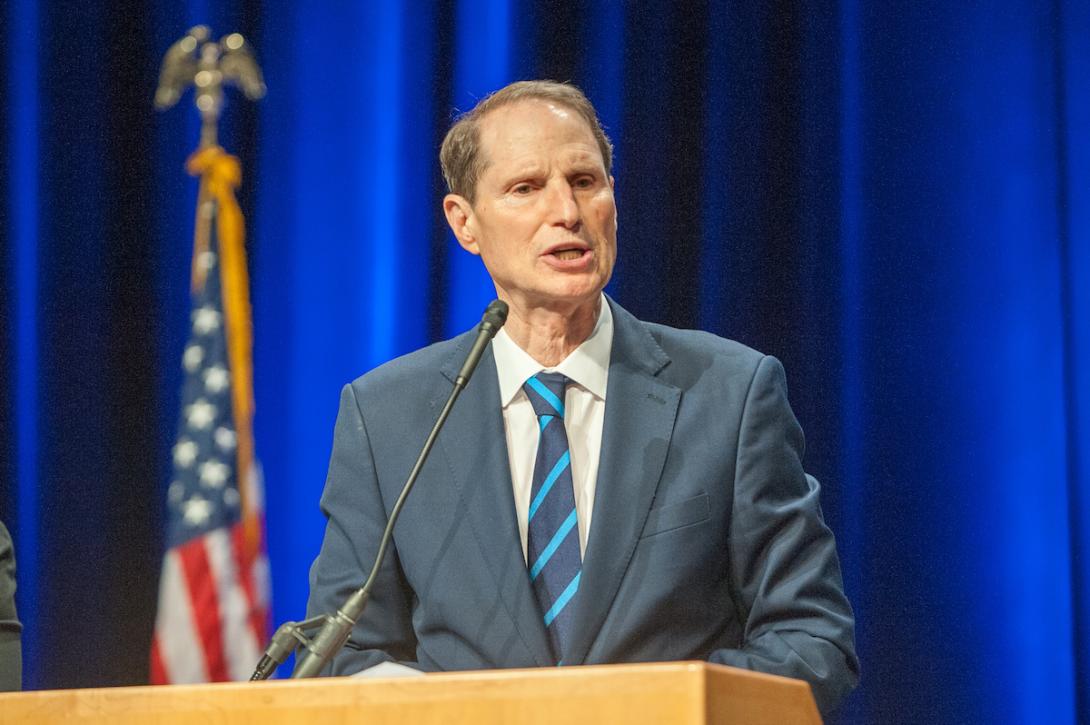
A proposal championed by Oregon’s senior U.S. senator, Democrat Ron Wyden, that would expand breast cancer screenings for women in the U.S. military has passed the U.S. Senate unanimously.
The bipartisan bill, co-authored by Wyden and Sen. John Boozman, R-Arkansas, would require the U.S. Department of Veterans Affairs to screen all women who’ve served in areas where garbage was burned in pits, so-called burn pits. These are used by the U.S. military in combat zones such as Iraq and Afghanistan. The sites, where plastics, rubber and hazardous and medical waste were tossed, spewed toxic substances into the air during burning.
Studies showed that breast cancer rates of women in the military are growing, with rates tripling between 1995 and 2012, according to a study published last year. Another study, also published last year, said that breast cancer rates for women in the military are seven times higher than that for 15 other cancers.
Burn pits have not just been associated with breast cancer either. Exposed soldiers, including members of the Oregon National Guard, have developed chronic respiratory conditions and other ailments, Wyden said. In 2009, he wrote an amendment to a defense authorization bill that successfully banned this disposal practice.
The current proposal is named after Kate Hendricks Thomas, a former professor of public health in Virginia who was diagnosed with breast cancer at age 38 in 2018, after serving as a marine in Iraq in 2005. According to numerous news reports, she didn’t have a history of breast cancer when a VA nurse practitioner advised her to get a mammogram.
The U.S. Preventive Services Task Force, which recommends who and when screenings should be used, says that women should have biennial mammograms between the ages of 50 and 74.
The bill on expanding mammograms passed the Senate last week and is now in the U.S. House for consideration. Wyden, who chairs the Senate Finance Committee, was among its supporters.
“We are one step closer to ensuring our nation’s veterans have the quality preventative care and life-saving services they need to live long healthy lives,” Wyden said in a statement. “I won’t stop fighting until this legislation reaches President Biden’s desk and is signed into law.
In an email to the Capital Chronicle, Wyden said women’s and veteran’s health care are one of his top priorities.
“Women’s health care and making sure veterans get the benefits they have earned with their service to our country should always be top priorities,” Wyden wrote. “This bipartisan bill helps to achieve both those key goals for women veterans – including soldiers from the Oregon National Guard – whose military service exposed them to seriously toxic substances.”
Oregon Capital Chronicle is part of States Newsroom, a network of news bureaus supported by grants and a coalition of donors as a 501c(3) public charity.
Isn't it a shame that it takes Congress to make the Military provide preventative services that are routine in the civilian world.